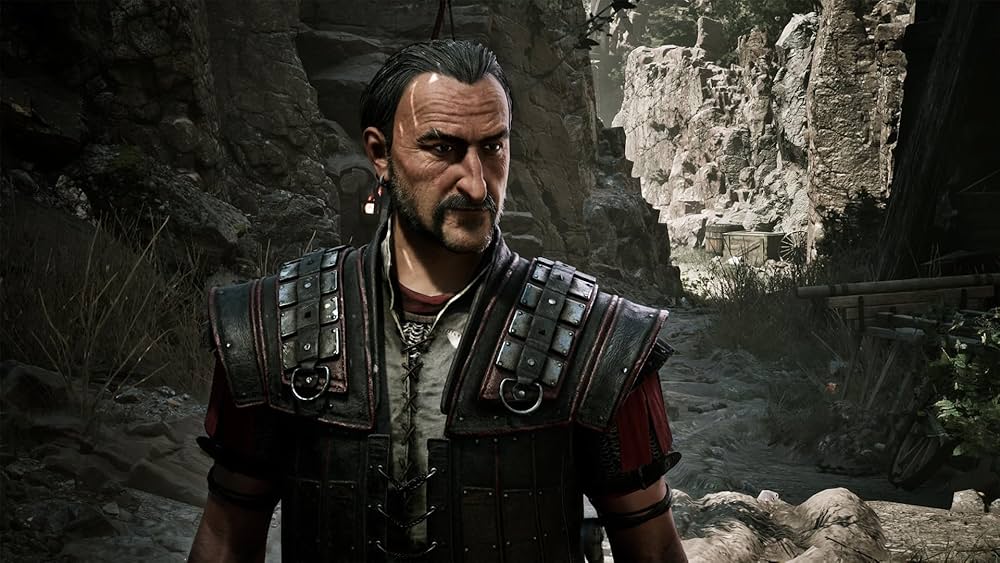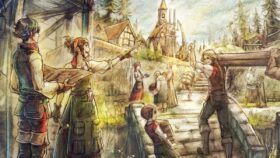Yes, yes, you’ve caught me. I’ve been spending time in the Colony again. Not the kind where you’d go to recharge or take in the sights – unless your idea of a good time involves surviving bandit ambushes, hunting bloodflies with a rusted sword, and negotiating with shady mages while watching your back at every step. Gothic isn’t a game that holds your hand. In fact, it barely acknowledges your presence before it dumps you into its grim world and tells you to figure it out yourself. But somehow, that’s exactly what makes it so intoxicating.
Anyone who knows me just a little, knows how passionate I am about Gothic (or any Piranha Bytes title, to be honest), but this review isn’t just that – it’s also a little bit of a love letter.
This is a game that shouldn’t work as well as it does. It’s janky, often unfair, and borderline unplayable until you learn its rhythms. But once you do, Gothic reveals itself as something rare: a living, breathing RPG that rewards stubbornness with genuine immersion. You’re not just playing a role – you’re surviving one.
Thrown to the Wolves – Literally
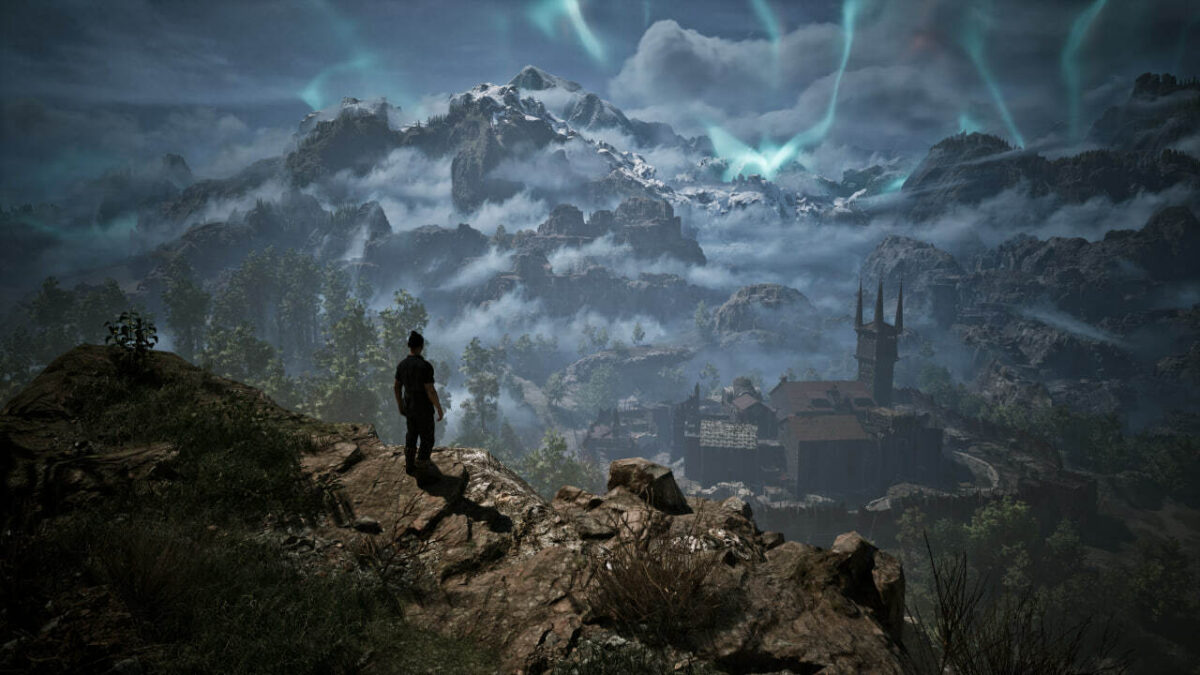
From the very first steps in Gothic, you know you’re in for a rough ride. The Nameless Hero doesn’t arrive with fanfare or prophecy – just a swift boot into a prison colony surrounded by a magical barrier. You’re tossed in, told nothing, and left to fend for yourself among three factions, each more suspicious than the last. You’ll learn to fight with sticks before you earn the right to wield a proper blade. You’ll be mocked, pushed around, and probably killed several times before you even scratch the main quest.
But that’s the brilliance of Gothic. It earns your trust by not offering any. Progress feels personal. Every conversation, every skill learned, every ounce of respect gained from other NPCs feels like something you had to claw for. The game never hands you power – it makes you fight for it. And when you finally get it? You feel like a legend.
A World That Doesn’t Revolve Around You
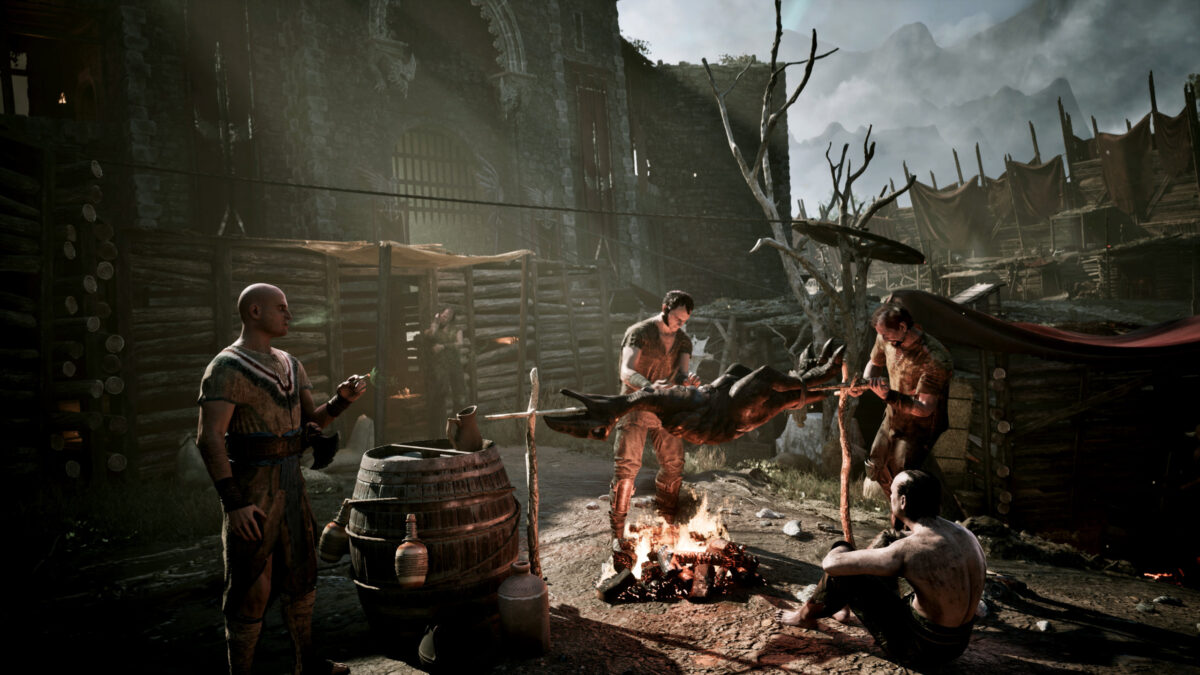
One of Gothic’s biggest strengths is its world-building. Khorinis may not be huge by modern standards, but it feels dense, reactive, and full of life. NPCs have their own schedules. They eat, sleep, argue, and go about their days whether you’re watching or not. The camps have distinct cultures, and you’ll quickly learn that alliances matter – pick a side too early, and you might close off quests or anger the wrong people.
The atmosphere is thick. The forest is dangerous. The swamp is eerie. And the Old Camp feels like a mix between a medieval fortress and a criminal cartel. Nothing feels overly designed, yet everything fits. Gothic doesn’t shout its lore at you – it just lets you live in it.
Combat, Controls, and the Clunky Charm
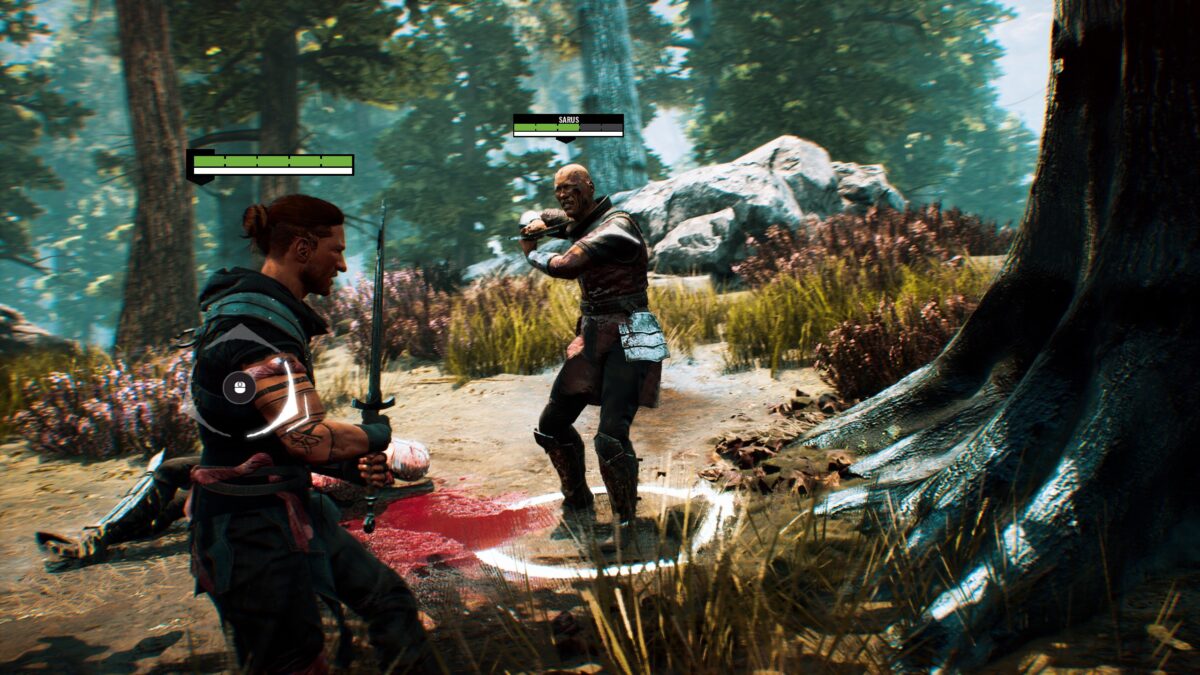
Let’s be honest: the combat is not great. At first, it feels like trying to wrestle a broomstick in a swamp. You’ll flail, you’ll miss, and you’ll wonder how anyone survived this place long enough to become a guard. But stick with it, and you’ll discover a system that – while rigid – has depth. Mastering Gothic’s combat is a rite of passage, not a feature.
The controls are similarly brutal. Everything requires a learning curve, from looting corpses to equipping weapons. It’s unintuitive by today’s standards, but once you adapt, it becomes second nature. And strangely, that awkwardness ends up reinforcing the survival aspect. Nothing comes easy in this world, and that includes walking straight.
From Nobody to Legend
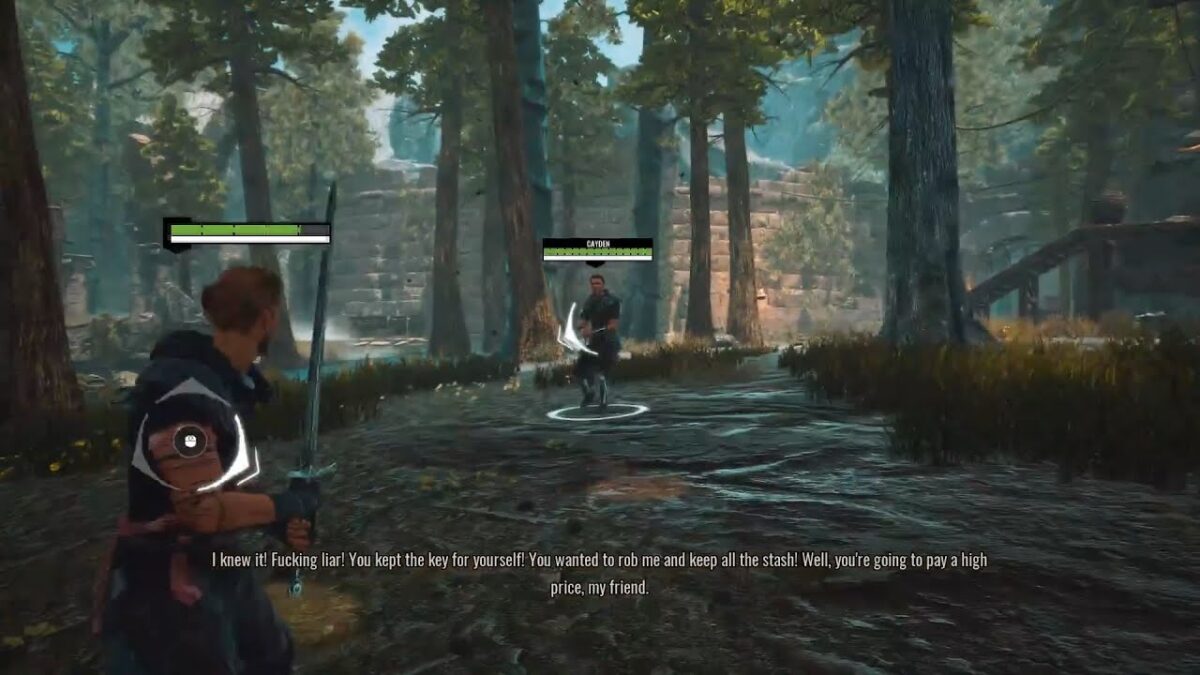
The real magic of Gothic lies in its progression. You start as nobody. No name, no gear, no skills. But through sheer determination, you rise. Join a faction, train with a mentor, find a proper sword, learn a spell – and suddenly, the world opens up. You start walking into rooms you used to sneak past. You challenge enemies you once ran from. You make decisions that shape outcomes.
It’s not flashy, and it’s certainly not smooth, but it’s satisfying in a way few games manage. You don’t just level up. You grow. Every victory feels earned, and every setback teaches you something new.
The Verdict: Rough, Raw, and Remarkable
Gothic isn’t a polished gem – it’s more like a jagged chunk of ore dug straight from the ground. Its edges are sharp, its systems unforgiving, and its controls? Let’s just say they take getting used to. But under all that grit is one of the most rewarding RPGs to come out of the early 2000s.
There’s no sugar-coating it: the combat is clunky, even by retro standards. The intro can feel like a brick wall. And unless you’re fluent in the language of old-school game logic, the lack of handholding and janky UI might leave you flailing. The world doesn’t wait for you – it shoves you in and dares you to survive.
But that’s exactly what makes Gothic so compelling. Its atmosphere is thick. Its world feels alive. Every step forward feels earned. It’s a cult classic for a reason – rugged, flawed, and unforgettable. Once it hooks you, there’s no turning back.
Five stars: ★★★★★
Gothic
Platform(s): PC
Developer: Piranha Bytes
Publisher: Egmont Interactive
Original Release Date: March 2001 (Germany)
